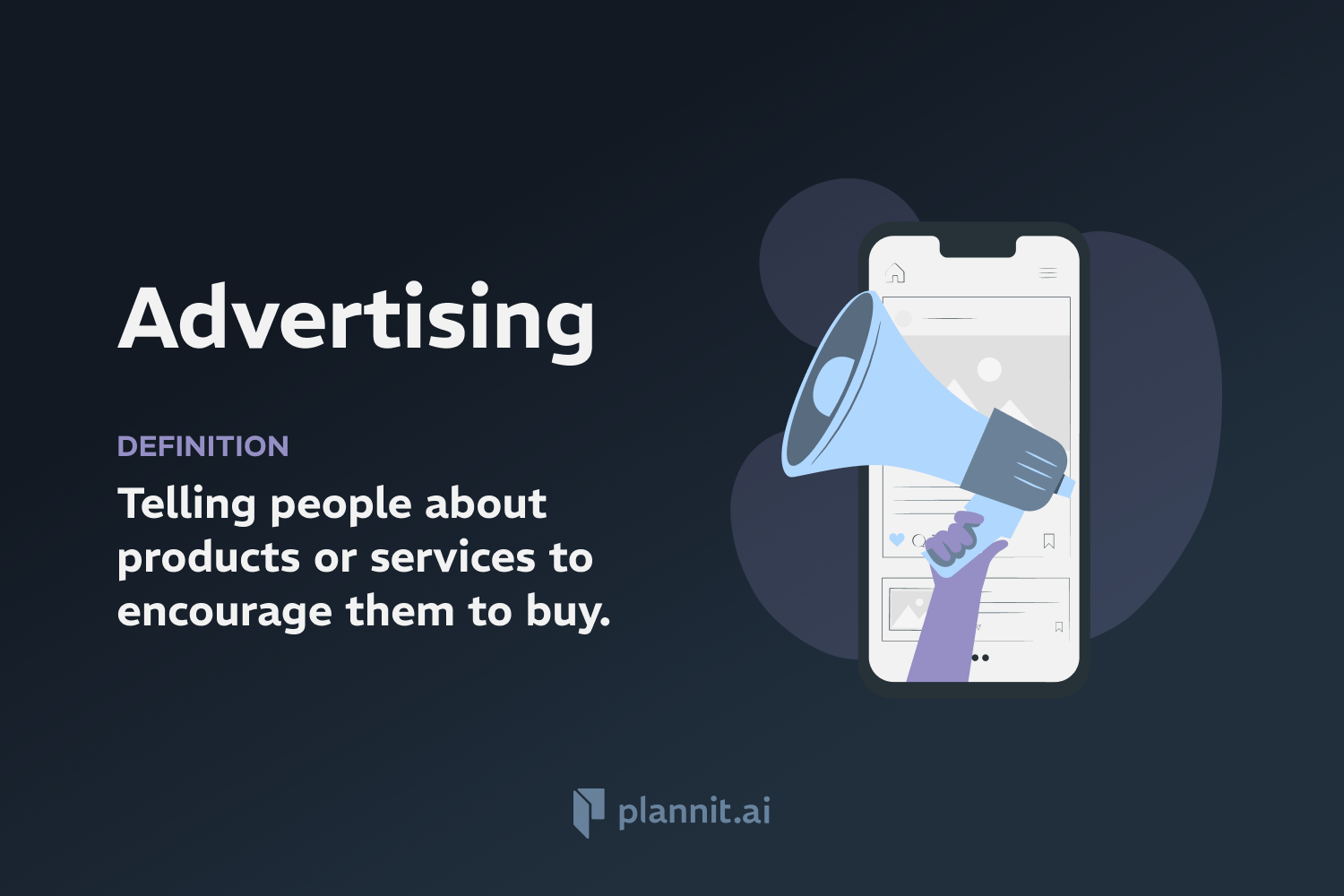Need Help With Your Business Plan?
Answer tailored questions and get a detailed business plan in minutes.
Advertising: Definition & In-Depth Explanation

Advertising is a marketing communication that employs an openly sponsored, non-personal message to promote or sell a product, service, or idea. It's ubiquitous across various media, including TV, radio, print (newspapers, magazines, flyers), online platforms (social media, search engines, websites), and outdoor advertising (billboards, transit ads). Businesses use advertising to reach potential customers, inform them about their offerings, and influence their purchasing decisions.
Purpose:
The primary purpose of advertising is to raise awareness about a product or service, create interest, stimulate demand, and ultimately drive sales or actions from the target audience. It also serves to differentiate a brand from its competitors, establish a brand image, and build a relationship with customers. In a broader sense, advertising supports the economy by promoting competition and innovation.
Example:
A new smartphone company launches an advertising campaign across multiple channels, including a series of TV commercials, social media ads, and billboard placements in major cities. The campaign highlights the unique features of their smartphone, such as an advanced camera system and long battery life, targeting tech-savvy consumers seeking high-quality devices. The ads aim to generate buzz, increase brand recognition, and drive pre-orders before the official launch.
Related Terms:
Marketing: The broader process of identifying customer needs and determining how best to meet those needs. Advertising is a component of marketing.
Brand Awareness: The extent to which consumers are familiar with the distinctive qualities or image of a particular brand of goods or services.
Target Audience: A specific group of consumers identified as the recipients of a particular advertising campaign or message.
Digital Advertising: Advertising that is delivered through digital channels such as search engines, websites, social media, email, and mobile apps.
Copywriting: The act of writing text for the purpose of advertising or other forms of marketing.
FAQs:
What's the difference between advertising and marketing?
Marketing is a comprehensive approach that includes market research, product development, distribution strategies, and after-sales service, among others. Advertising is a specific activity within marketing that involves promoting a product or service to the target audience.
How do companies measure the effectiveness of their advertising?
Companies measure advertising effectiveness through various metrics such as reach, impressions, click-through rates, conversion rates, sales growth, and return on investment (ROI).
Can advertising be unethical? What are the safeguards?
Advertising can be considered unethical if it misleads consumers, makes false claims, or promotes harmful products. Safeguards include regulations and standards set by governmental and industry bodies, ensuring that ads are truthful and responsible.
What role does creativity play in advertising?
Creativity is crucial in advertising as it helps to capture the audience's attention, make a memorable impression, and differentiate the brand from competitors.
How has the rise of digital media impacted advertising?
Digital media has transformed advertising by enabling more targeted, interactive, and personalized ad campaigns. It has also introduced new platforms and technologies for advertisers to reach their audience more efficiently and measure the impact of their campaigns in real-time.
Try out our calculator to see how your return on ad spend is (ROSA)
Get funding with a business plan that will impress investors.
Starting a New Business?



